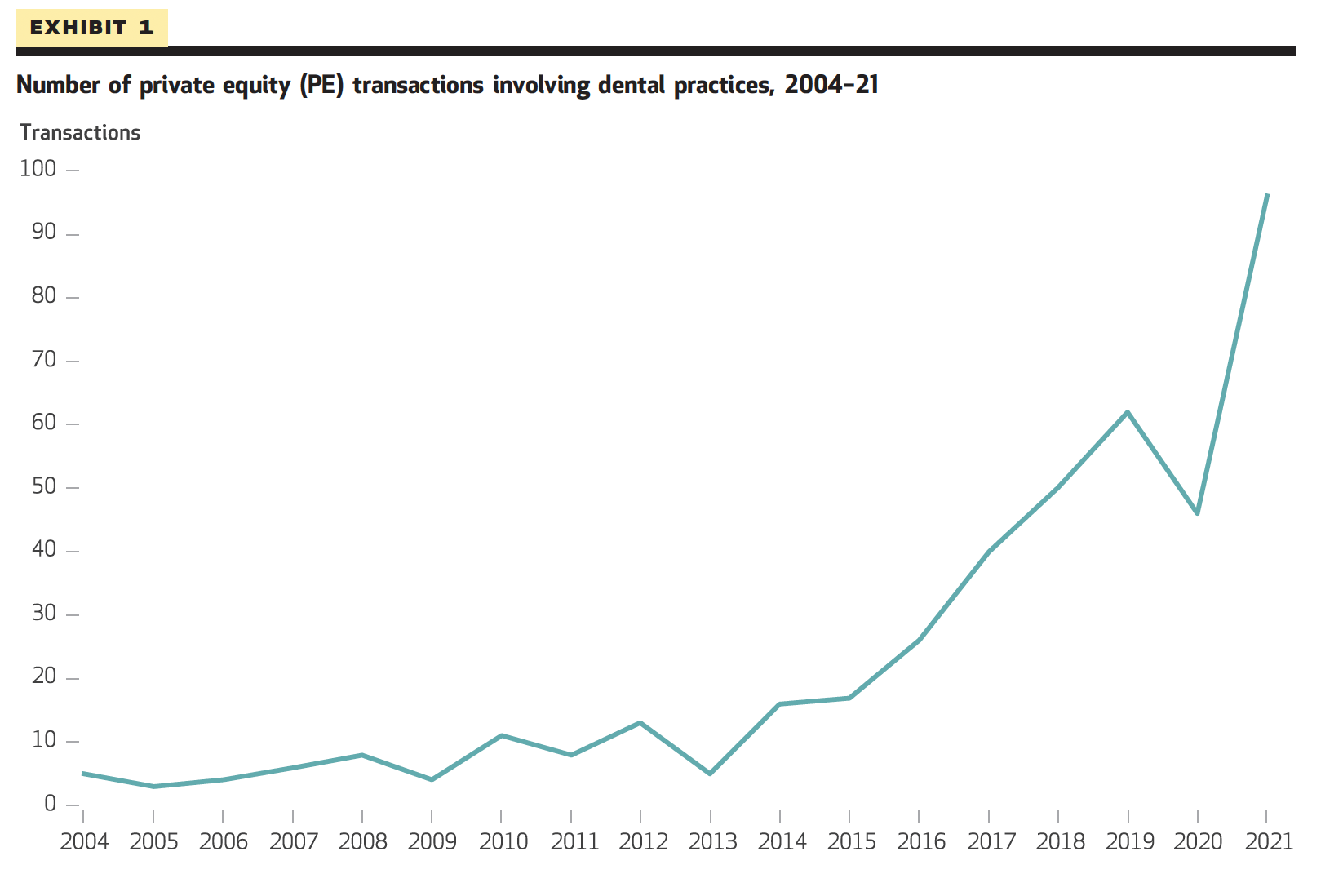Private equity affiliation among dentists increases
Change especially affects dental specialists

The percentage of dentists affiliated with private equity has nearly doubled over the course of six years, according to a paper released Aug. 5 by the ADA Health Policy Institute.
According to the analysis, dentists affiliated with private equity increased from 6.6% in 2015 to 12.8% in 2021.
Private equity affiliation increased particularly among larger dental practices and among dental specialists like endodontists, oral surgeons, pediatric dentists, orthodontists and prosthodontists, according to the paper, authored by Kamyar Nasseh, Ph.D., ADA health economist, Anthony T. LoSasso, Ph.D., professor and chair of the DePaul University economics department, and Marko Vujicic, Ph.D., ADA chief economist and vice president of the Health Policy Institute.
“The dental provider market is highly fragmented, which makes it an attractive acquisition target for [private equity] firms, given the perceived potential to improve the efficiency of practices and increase [private equity] firms’ profit margins or market share,” the paper reads.
The study examined changes in private equity affiliation among dentists during the periods 2015-17 and 2019-21. Researchers used a novel dental provider database that mapped dentists into office locations and large group practices and used private equity transaction data to flag dental offices affiliated with private equity firms. Researchers then used these data sets to examine trends in dentists’ affiliation with private equity over time and how it varies by dentists’ characteristics and locations.
Results of the study showed that the number of documented private equity transactions involving dentists was consistently low from 2004 to 2015, at fewer than 20 per year. But in 2016 the number of transactions increased, reaching 62 in 2019 before decreasing to 46 in 2020. In 2021, the number of transactions increased to 96.
The percentage of endodontists, oral surgeons, orthodontists, pediatric dentists and prosthodontists affiliated with private equity more than doubled from 2015 to 2021, with endodontists seeing the greatest growth in private equity. General practice dentists affiliated with private equity increased by 87%, from 6.8% in 2015 to 12.7% in 2021. While substantial, this was less than the increase seen for endodontists, oral surgeons, orthodontists, pediatric dentists, periodontists and prosthodontists.
But why the focus on dental specialties? According to researchers, there are several possibilities.
“One possible reason for [private equity] interest in dental specialist practices may be the high prices that specialists can earn for procedures such as root canals and implants, as opposed to routine exams from general practice dentists. [Private equity] firms may believe that they can get a higher return on investment from acquiring specialist practices. It is also possible that [private equity] interest in dental practices is due to underrealized economies of scale in dentistry, potentially resulting in improved efficiency,” the paper reads.
The study also found that private equity affiliated practices had a higher rate of Medicaid participation than practices not affiliated with private equity. However, researchers could not “rule out the influence of unobserved confounding factors, such as profit margins or the number of auxiliary staff members such as dental hygienists.”
As private equity firms continue to acquire dental practices and potentially increase consolidation, the study emphasized the importance of ensuring future research examines the effect these acquisitions have on costs of dental procedures, procedure mix, dentists’ participation in Medicaid and the quality of care. In the paper, the authors also called for continued research of private equity in dental practices.
“These trends bear watching,” the study concluded. "Future research should focus on the effects of [private equity] affiliation on access to and quality of care for dental patients.”



